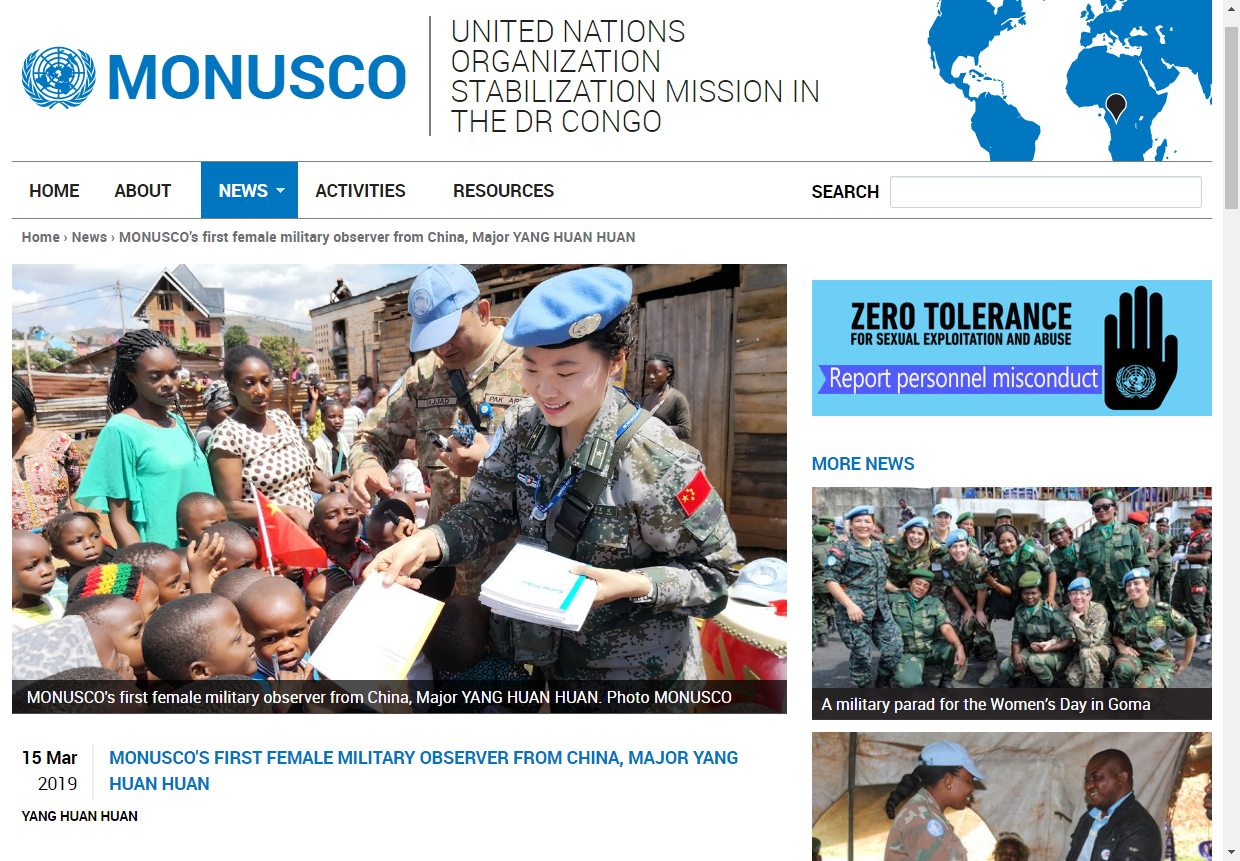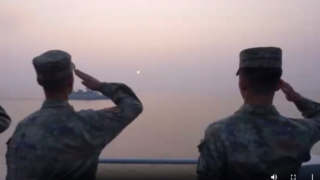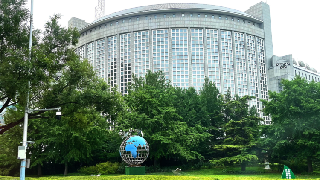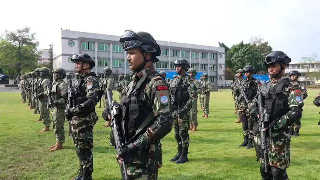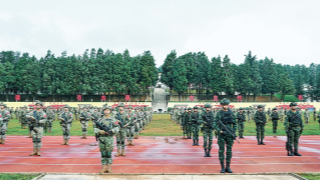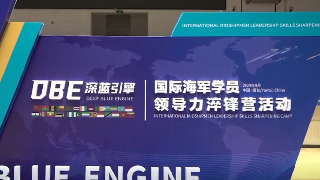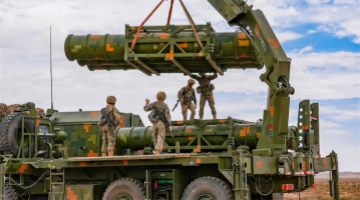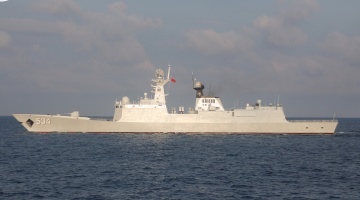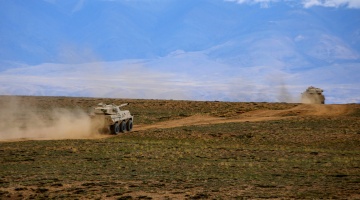
Source: unmissions.org
By Yang Huanhuan
I came to Congo 10 months ago. While in Congo, I was moved by many stories every day, especially when interacting with the local people and villagers; I am deeply touched by their sense of humility, kindness and curiosity to know new things.
In each patrol to a village, children would follow the patrolling car and shout "MONUSCO!", obliging us to drive slowly for fear of raising dust and hurt their bodies, still weak. Children wouldn't care, they would keep running joyfully. They would flock around the UN car and come closer to us to watch our skin and appearance that were different from theirs. They would soon realize that they were dealing with friendly people, "MONUSCO Military Observers".
Being one of the first group of female military observers from China, my family and friends in China had serious concerns about how I was living in Africa.
If I tell them everything is okay, that would be a lie. From the world's biggest developing country to the less developed regions of the world, that is the war-torn eastern DR Congo, challenges are self-evident.
In such an extremely weak country, military observers need to take care of their own food, daily necessities, housing, etc., that is, they need to rent their own houses, cook their own meals, and when patrolling, drive the vehicle ourselves.
Due to the particular nature of the work done by military observers, United Nations did not equip us with weapons or guards. The bare-handed observers’ patrolling investigations were not that easy. While displaying the United Nations peaceful nature, observers’ work exposed them to all sorts of risks.
Well, as a soldier, I am prepared for all kinds of hardships. We regularly face lack of water and electricity difficult-to-access roads in the Bukavu Highway where I was deployed. During the dry season, the situation was even worse with patrolling vehicles driving in dusty road affecting their visibility; everything would look blurred with the rising dust.
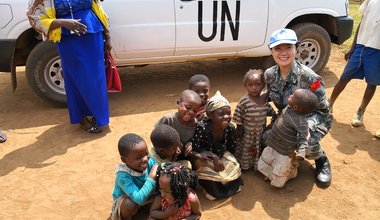
If not, much can be seen when driving on dusty roads; what about in the rainy season? Roads are flooded with rain waters and we almost drive on streams; no way for the water to drain itself off the road. With the impressive amount of clay, it is like driving in a mud swamp, with the wheels skidding helter-skelter and making life even more difficult.
CIRHAGABWA village chief, Mr. Kozibwa, trusts MONUSCO military observers. When we get to the village to fetch water, he tells us the difficulties faced by the village. I remember, once, we patrolled to the Sinelac village, where we found a water tap in front of the village office!
It was indeed the first time to see water tap equipment in a village for the past four months. In most villages one would find water wells. I rushed and tried to turn on the water faucet. I was about to tell the villagers to wash their hands frequently, to heed the hygiene rules so as to protect themselves from the Ebola virus disease. Can you imagine! Not a drop of water in the water pipe. Villagers told me the water pipe did not receive any water supply for a long time.
All I had in mind when coming to Africa, it is a vast grassland, a mysterious place. But now I know from what I see on the ground, it has villages with devastated thatched cottage and mud houses, barefoot children and scantily dressed villagers. Every time I see this, I think I should do something. As a result, during each patrol, I carry some snacks for the local people..
Once the food package is ripped opened, villagers would swarm up and wipe out the whole package in a matter of seconds. After patrolling the area and distributed the food items for some time, I paused for a while and thought: “food and aid are limited; they can in no way truly and effectively respond to the need of the villagers sustainably.
Knowledge can change life How can the villagers be actually lifted from poverty to prosperity?” I come up with the idea: knowledge can effectively change the course of life. So, I stopped taking candies and biscuits when patrolling, but started bringing some books, notebooks, pens, and foot balls for the children. I also asked my comrades to join in the efforts, contributing pens with cartoon books and toys from China, hoping to develop children's interest in learning.
"Knowledge can indeed change fate, sports can make one feel stronger and sturdier," I told the children in the village, adding ‘’if you want to get rid of poverty, this is the only path to take.’’ There is no shortcut to success. The elder children nodded sensibly, and the younger children looked at their older brothers and sisters, trying to understand what I meant. However, more importantly, I could feel from their look, they were more curious with a longing desire for happiness.
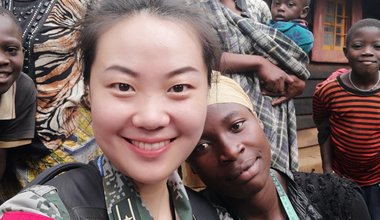
The local people who have seen so many patrols became familiar with the Military observers. A local village woman, Florence, is a mother with three children who went through a terrible ordeal in which all her family members perished in a fire accident. This made her life, which was already tough, even worse. She looked helpless as she sat on the ashes and wept. I was so sad that I put $50 in an envelope with some words to comfort her in Swahili; it read: "Florence, don't cry, be strong! We stand with you!"
I also gave her clothes and shoes, hoping to cheer her up. The $50, for me, is nothing, but it is the equivalent of Florence’s monthly salary. This small gesture not only conveyed our sympathy, but also, more importantly, was meant to help her family out of the stormy situation. She had no mobile phone and couldn't speak English. She asked someone to send me a congratulatory text message. She has now rebuilt her home to start a new life and will never forget the help of the Chinese military observer.
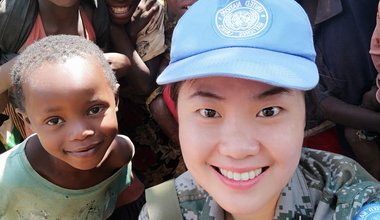
As military observers, we put together the first-hand information received during the patrol investigations and report them to relevant departments every day. It makes me happy to see how our efforts can help make some difference in the country. The good news is when the Congolese government takes positive actions. As an example, the road leading to Nyangezi in Bukavu was half rehabilitated.
Each year, many military observers from across the world join the peacekeepers as military observers and we continue to receive great stories about our MILOB team – as the saying goes: ‘’Before coming to Africa, one is afraid of Africa; while being in Africa, one loves Africa. Now, I have fallen in love with Africa as well its people and its land. I will continue to work hard with my teammates for peace and happiness to prevail in DR Congo!
Disclaimer: This article was originally produced and published by unmissions.org. View the original article at unmissions.org.
